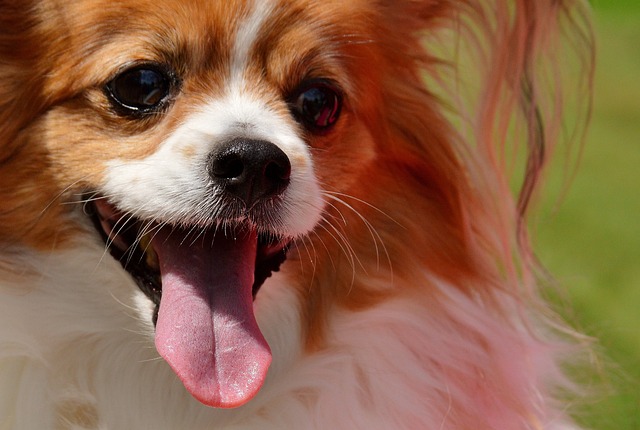We all agree that Chihuahuas stand out as one of the smallest and most charming companions. Many people love them because of their small size, big personalities and expressive eyes. But even though Chihuahuas are small, they have health issues that every owner should be aware of.. In this guide, we’ll look more closely at Chihuahua health issues. From common problems to ways to avoid them, we’ll help your furry friend live a long, and healthy life.

Understanding Chihuahua Health Issues
Before we learn the specifics, it’s crucial to grasp the basics of Chihuahua health. These miniature canines, weighing in at just a few pounds, are prone to certain health problems. Being aware of these issues can help you provide the best care for your beloved Chihuahua.
Chihuahua Health Issues: An Overview
Chihuahuas, like all dog breeds, can experience a range of health issues. However, they are particularly susceptible to several conditions, including:
Patellar Luxation in Chihuahuas:
Patellar Luxation is a common Chihuahua health issue that often takes the spotlight. This condition causes the patella to move out of its usual place. Unfortunately, it makes these small dogs walk in a painful, lurching way.
Patellar Luxation can be mild or severe. Some Chihuahuas just stumble sometimes, while others can’t walk at all.
Fortunately, this condition is treatable if treated promptly. Milder cases may be treated with conservative measures. Rest and anti-inflammatory medication are only some of them. On the other hand, more severe cases may require surgical correction.
With your care and the help of your vet, your Chihuahua can get back to walking normally and live a better, happier life.
Dental Problems in Chihuahuas:
Dental problems in Chihuahuas can be a challenging facet of their overall health. These cute little dogs can have problems with their teeth, so their parents need to keep an eye on them as well. Here is a full look at the types of teeth problems Chihuahuas can have, what causes them, and how they can be treated.
Tooth Decay and Gum Disease:
Just like humans, Chihuahuas can suffer from tooth decay and gum disease due to the buildup of plaque and tartar. Poor dental hygiene, coupled with a high-sugar diet, can exacerbate these issues. Regular tooth brushing, dental chews, and professional cleanings are vital to combat tooth decay and gum disease.
Overcrowding:
Chihuahuas’ tiny mouths often result in overcrowded teeth. This can lead to misalignment and difficulty in maintaining proper oral hygiene. In severe cases, it might require dental extractions to alleviate discomfort and prevent further issues.
Tooth Fractures:
These can occur due to chewing on hard objects or accidental trauma. Fractured teeth can be painful and may need to be extracted or treated with dental bonding to restore function.
Plaque and Tartar Buildup:
Chihuahuas are prone to rapid plaque and tartar buildup, which can lead to bad breath, gum disease, and tooth decay. Regular brushing and professional cleaning can help prevent this. We also recommend you to allow your pet to play with chew toys made of rubber. Chihuahua toys can help in decreasing tartar and plaque, and also serve as mental stimulation for your pet.
Periodontal Disease:
If gum disease isn’t taken care of, it can lead to periodontal disease, which affects the parts of the teeth that hold them in place. It can result in tooth loss and systemic health issues. Treatment may involve dental cleanings, antibiotics, and sometimes, tooth extraction.
Oral Masses and Tumors:
Chihuahuas can develop oral masses or tumors, which may require surgical removal and biopsy to determine their nature.
Preventive measures play a pivotal role in maintaining your Chihuahua’s oral health. Daily tooth brushing using canine toothpaste and a soft-bristle brush is highly recommended. Dental chews and toys designed to promote oral hygiene can aid in plaque removal. Additionally, providing a balanced diet and limiting sugary treats can help prevent tooth decay.
Regular dental check-ups with a veterinarian are crucial. Professional cleanings may be required annually or as recommended by your vet. During these cleanings, your Chihuahua will be under anesthesia to ensure a thorough examination and cleaning without causing them stress or discomfort.
Hypoglycemia in Chihuahuas:
Hypoglicemia is one of the most common Chihuahua health issues. .This condition is followed by low blood sugar, and can be especially worrying for these pooches. To make sure your Chihuahua is healthy, you must know why it happens and how to deal with it.

Causes of Hypoglycemia in Chihuahuas:
- Fast Metabolism: Chihuahuas boast a rapid metabolism, and this, coupled with their petite size, means they burn through energy quickly. Skipping meals or extended periods between meals can lead to low blood sugar levels.
- Stress and Anxiety: Chihuahuas are known for their sensitive nature, and stress or anxiety can trigger a drop in blood sugar. Events such as travel, change in environment, or separation from their owners can induce stress-related hypoglycemia.
- Intense Activity: Overexertion during play or exercise without sufficient food intake can deplete their energy reserves, resulting in low blood sugar.
- Cold Weather: Chihuahuas are sensitive to cold temperatures. It can lead to shivering and increased energy expenditure, potentially causing hypoglycemia if they don’t consume enough calories to compensate.
Healing Hypoglycemia in Chihuahuas:
- Frequent Meals: To prevent hypoglycemia, Chihuahuas should be fed multiple small meals throughout the day, ensuring a steady supply of energy.
- Balanced Diet: Providing a well-balanced diet tailored to their specific needs can help stabilize blood sugar levels. Consult your veterinarian for dietary recommendations.
- Stress Reduction: Minimize stressful situations for your Chihuahua whenever possible. Familiar environments and routines can help alleviate anxiety-related hypoglycemia.
- Regular Exercise: While exercise is essential, it should be balanced with adequate calorie intake. Ensure your Chihuahua doesn’t overexert themselves during playtime or walks.
- Monitor Blood Sugar: If your Chihuahua is prone to hypoglycemia, talk to your vet about how often you should check their blood sugar levels.
- Emergency Measures: If your Chihuahua has severe hypoglycemia and is weak, shivering, or having seizures, you need to react quickly.
Low blood sugar can be a concern, especially in Chihuahua puppies. It can lead to weakness and seizures.
Tracheal Collapse in Chihuahuas:
Chihuahuas have fragile tracheas, which can collapse due to stress or strain. This leads to a distinctive coughing sound often described as a “goose honk.” To minimize the risk, use a harness instead of a collar when walking your Chihuahua, as collars can put pressure on the throat.
Chihuahua health issues: How to treat trachea collapse?
1. Weight Management:
Maintaining a healthy weight is paramount. Extra pounds can place unnecessary stress on the trachea, exacerbating the condition. Consult your veterinarian for a proper diet plan tailored to your Chihuahua’s needs.
2. Use a Harness:
Opt for a harness instead of a collar when walking your Chihuahua. Collars can put pressure on the throat, but a harness spreads the force out evenly, making it less likely that the trachea will get sore or break.
3. Medication:
In mild cases, your vet may give your Chihuahua cough suppressants or bronchodilators. They’ll ease the symptoms and make his/her life better.
4. Lifestyle Adjustments:
Make modifications to your Chihuahua’s lifestyle. Minimize exposure to irritants such as smoke or harsh chemicals, as these can exacerbate tracheal issues.
5. Humidification:
Using a humidifier in your Chihuahua’s environment can help soothe their airways. They can reduce coughing episodes, especially in dry climates.
6. Surgical Intervention:
In severe cases where conservative measures are ineffective, surgical options may be considered. Procedures like tracheal stenting or the placement of prosthetic rings can provide structural support to the trachea, improving airflow.
7. Veterinary Consultation:
Regular check-ups with your veterinarian are crucial. They can monitor your Chihuahua’s condition, adjust treatment plans as needed, and provide guidance on managing tracheal collapse effectively.
Remember that the best way to treat your Chihuahua will depend on how bad the collapsed trachea is and what your dog needs.
It’s important to work closely with your vet to come up with a treatment plan that will make your Chihuahua comfortable.
Heart Problems in Chihuahuas:
Even though they are small, these cute pets can suffer from a number of heart problems. It’s important for your Chihuahua’s health that you know about these problems, how they show up, and what you can do to fix them.
Common Heart Problems in Chihuahuas:
- Heart Murmurs: Heart murmurs are abnormal sounds in the heart, often indicating turbulent blood flow. They can be a sign of an underlying heart condition and are typically graded on a scale of severity.
- Congestive Heart Failure (CHF): CHF occurs when the heart can’t pump blood effectively, leading to fluid accumulation in the lungs and body. Chihuahuas may develop CHF due to their predisposition to heart disease.

Symptoms of Heart Problems:
Chihuahuas may exhibit various symptoms when experiencing heart problems, including:
- Coughing
- Labored Breathing
- Weakness or Fatigue
- Difficulty Exercising
- Reduced Appetite
- Fainting or Collapsing
- Enlarged Abdomen (due to fluid retention)
Managing Heart Problems:
- Medication: Veterinarians often prescribe medications to manage heart conditions in Chihuahuas. These medications can include diuretics, ACE inhibitors, or beta-blockers to alleviate symptoms and improve heart function.
- Dietary Changes: Specialized diets low in sodium and rich in essential nutrients may be recommended to support heart health.
- Regular Veterinary Check-ups: Routine visits to the veterinarian are crucial for monitoring your Chihuahua’s heart condition. Your vet can adjust medications and provide guidance based on your dog’s specific needs.
- Moderate Exercise: While exercise is essential, it should be moderated to prevent overexertion. Consult your veterinarian for guidance on an appropriate exercise routine for your Chihuahua.
- Stress Reduction: Minimize stressors in your Chihuahua’s environment, as stress can exacerbate heart issues.
- Weight Management: Maintaining a healthy weight is critical, as obesity can strain the heart. Consult your vet for guidance on a balanced diet and portion control.
- Obesity in Chihuahuas:
Obesity occurs when a Chihuahua consumes more calories than they burn, resulting in the accumulation of excess body fat. Several factors contribute to obesity in Chihuahuas, including:
- Overfeeding: Providing too much food or excessive treats can lead to weight gain.
- Lack of Exercise: Chihuahuas, like all dogs, require regular physical activity to maintain a healthy weight.
- Feeding Habits: Free-feeding or allowing access to food at all times can encourage overeating.
Health Risks Associated with Obesity:
Obesity can have severe consequences for Chihuahuas, including:
- Joint Problems: Excess weight puts strain on joints, leading to arthritis and mobility issues.
- Diabetes: Obesity increases the risk of developing diabetes in Chihuahuas.
- Heart Disease: The heart must work harder to support an overweight Chihuahua.
- Reduced Lifespan: Obesity can shorten a Chihuahua’s life expectancy by several years.
Managing Obesity in Chihuahuas:
- Balanced Diet: Consult your veterinarian for a well-balanced diet tailored to your Chihuahua’s specific needs. Measure portions to avoid overfeeding.
- Regular Exercise: Engage your Chihuahua in daily exercise, such as walks and playtime. Exercise not only burns calories but also keeps your dog mentally stimulated.
- Portion Control: Follow recommended portion sizes, and avoid giving in to those pleading eyes when it’s not mealtime.
- Limit Treats: Minimize high-calorie treats and opt for healthier alternatives, like vegetables or small bits of lean meat.
- Scheduled Feeding: Establish a feeding schedule to regulate your Chihuahua’s eating habits.
- Weight Monitoring: Regularly weigh your Chihuahua to track their progress.
- Veterinary Guidance: Consult your veterinarian for a weight management plan tailored to your Chihuahua’s specific needs. They can recommend a suitable diet and exercise regimen.

Battling Obesity: A Weighty Issue
Obesity can exacerbate many of the health problems mentioned earlier. Chihuahuas are particularly susceptible due to their size. Ensure you feed them a balanced diet, monitor portion sizes, and engage in regular exercise to maintain their ideal weight.
Preventive Measures For Escaping Chihuahua Health Issues
Now that we’ve explored these common Chihuahua health issues, let’s discuss preventive measures.
Regular Veterinary Check-ups
Regular visits to the vet are essential. Your veterinarian can catch potential health issues early, recommend appropriate vaccinations, and provide guidance on maintaining your Chihuahua’s health.
Proper Nutrition
A balanced diet is critical for your Chihuahua’s overall health. Consult your vet for recommendations on the best food for your Chihuahua Take into account their age, size, and specific dietary needs as well.
Dental Care
Maintain good dental hygiene by brushing your Chihuahua’s teeth regularly and providing dental treats or toys. This helps prevent dental problems that are common in the breed.
Exercise Is Key To Preventing Chihuahua Health Issues
While Chihuahuas are small, they still need regular exercise to stay healthy and maintain a healthy weight. Daily walks and playtime are essential for their well-being.
Weight Management
Avoid overfeeding and ensure your Chihuahua maintains a healthy weight. Obesity puts them at greater risk for numerous health issues. Therefore, make sure you choose high-quality food for your Chihuahua. If you prefer feeding your pooch with dry kibble food, make sure you carefully read the label. Opt for dog food brands that contain a higher percentage of meat and that are free of additives and artificial flavors.
As we all know, Chihuahuas can develop allergies to certain ingredients.

Stress Reduction
Chihuahuas are known for their sensitivity. Minimize stress in their environment and provide a safe, comfortable space where they feel secure.
Grooming
Proper grooming, including regular baths, brushing, and nail trimming, helps keep your Chihuahua’s coat and skin in top condition.
Socialization
Socialize your Chihuahua from an early age to prevent behavioral issues. Ensure they are comfortable around other dogs and people.
Chihuahua Health Issues: Wrapping up
Chihuahuas, with their petite size and big hearts, make wonderful companions. However, it’s vital to be aware of the unique health issues they may face.
Remember that a little extra care goes a long way toward making sure your little Chihuahua lives a happy life.


11 thoughts on “Chihuahua Health Issues: A Comprehensive Guide”